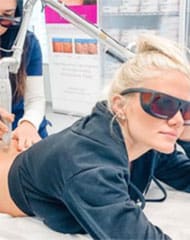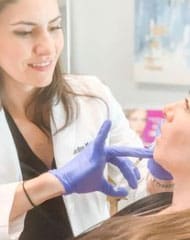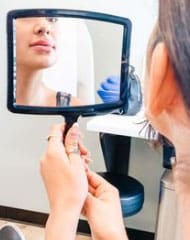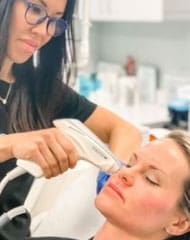 One of the more common concerns that women have before committing to breast augmentation surgery is whether their nipple sensation will be affected. After all, the goal for most women considering breast implants is to improve their look and feel even more confident, without any drawbacks. So what’s the real chance that you will lose some sensation in your nipples after surgery?
One of the more common concerns that women have before committing to breast augmentation surgery is whether their nipple sensation will be affected. After all, the goal for most women considering breast implants is to improve their look and feel even more confident, without any drawbacks. So what’s the real chance that you will lose some sensation in your nipples after surgery?
Right after Breast Implant Surgery
For the first few weeks after breast augmentation, many women will have a temporary decrease in nipple sensation. This is due to the fact that the nerves in the area can be disrupted during the surgery, leading to temporary numbness or decreased sensitivity. You should gradually regain sensation, and most women will not experience longer-term loss of sensation.
If Nipple Sensation Loss Continues
In some cases, some degree of decreased nipple sensation may be permanent. The risk of permanently decreased nipple sensation is higher for women who have submuscular placement of their implants. With this approach, the implants are placed behind the chest muscle, which can put increased pressure on the nerves in the area. The risk also increases for women who have had multiple breast surgeries.
It is important to note that the extent of any lasting decrease in nipple sensation varies from person to person. Some women may experience only a slight decrease in sensitivity, while a select few may have complete loss of sensation.
Plan for Your Best Outcome
Women who are considering breast augmentation should discuss the potential impact on nipple sensation with their cosmetic surgeon. Dr. Castellano is able to provide more specific information on the risk of decreased nipple sensation, as well as the steps that can be taken to minimize the risk.
Nipple sensation often changes after breast augmentation, but in most cases the decreased sensitivity is only temporary. It is one factor among many that informed patients should consider before having breast augmentation, and with modern implant techniques should not be a lasting concern for most women.
Related Posts












